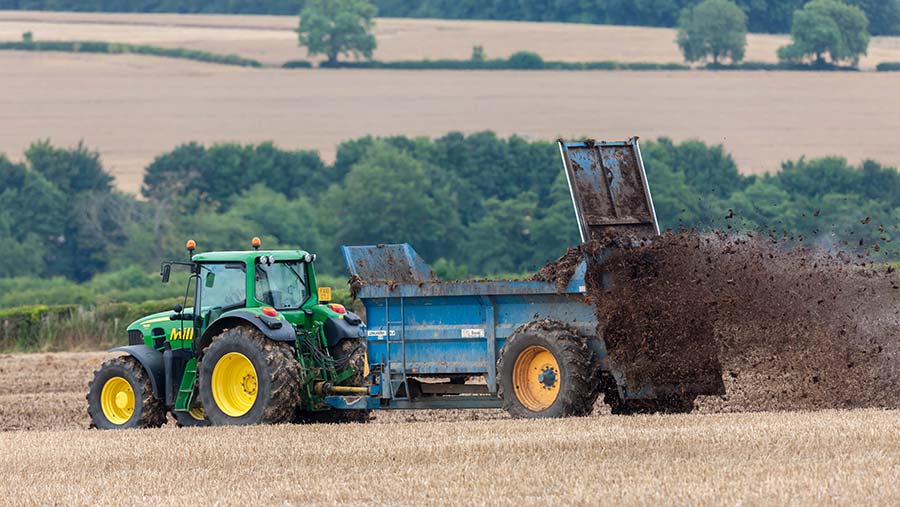Expert’s 5 tips for arable farmers converting to organic
 © Tim Scrivener
© Tim Scrivener Converting arable farms to organic production can be a big step as farmers ditch pesticides and fertilisers to rely on cultural methods of controlling pests, weeds and diseases.
The conversion process can take up to three years, bringing potential increased risks of crop failure. However, with the right approach, farmers can enhance their chances of a successful transition.
For those farmers about to start their journey, Worcestershire-based grower Adrian Steele, who converted to organic more than 30 years ago, offers his five top tips.
See also: Why one grower went organic to tackle blackgrass problem
1. Make sure your farm is suitable
Mr Steele’s first tip is to ensure your farm is suitable for conversion, and he believes most farms are, with only small tweaks required to existing systems and equipment.
Organic farming is a long-term commitment, so ensuring first that farm businesses are suited to the system is important for profitability.
It is also essential to consider the cost of converting, with grassland farms being considerably less expensive and time consuming to convert than arable farms.
Certifiers can allow partial farm conversions, if it is clear the land in question is run separately from the non-organic farm areas.
Other farm enterprises can complicate conversions. For example, manure from indoor pig units is not permitted in organic systems, but a soil fertility plan for a rotation can help overcome the problem.
2. Know your market
Demand for organic is rising. The market has undergone eight consecutive years of growth with demand significantly outstripping current UK production.
Being driven by the market is vital for effective organic farming, as conventional methods can’t be used. The soil association enables access to regular trade briefings and market reports so farmers can keep a close eye on what’s happening in the marketplace to identify new routes to market.
The organic cereals industry has fewer competing buyers which can take large quantities at short notice, resulting in a more stable marketplace with premiums of 50-100% above conventional market prices.
The UK currently imports about 80% of its organic animal feed, creating scope for an additional 80,000ha of arable production, which is easily achievable.
3. Have a credible business plan
With the agricultural industry under financial and environmental pressures, it is important that farmers think ahead about business resilience, farm management and soil sustainability.
A thought-through business plan is essential for converting to organic, as a two-year conversion period must be completed before products can be sold organically, creating cash flow issues for some farm enterprises.
Farmers must therefore be prepared for the transition and have the ability to make important business decisions.
Starting conversion before autumn or spring drilling can ease cash flow problems by ensuring an organic crop is ready for harvest as soon as possible after conversion is completed.
During conversion, the land and crops must be managed to full organic standards. Crops harvested during the second year of conversion can be sold as “in conversion”.
Perennial crops can be sold as organic only after a three-year conversion is complete. If you have grazing livestock, the land must be certified as organic for you to sell products from those animals as organic.
4. Believe in organic
Farming organically requires greater collaboration and co-operation across the entire food supply chain and at the farm level.
People must believe in the organic system, so it is essential that family members and workers are on side to support what is a big change in the business.
Farm workers should be fully aware of what the organic transition entails. Daily farm duties will alter, especially with the introduction of livestock in to arable rotations as workers may not have experience in animal handling.
It is also particularly important to check with landlords and business partners for permission to convert.
5. Seek advice from the Soil Association
The Soil Association is the UK’s largest organic certification body, providing technical information and independent guidance to farmers aiming to go organic.
Details on implementing changes on farm are given at no detriment to certification applications.
Conversion begins after an application and inspection has been completed, which creates an opportunity to check organic standards compliance and provide guidance where there may be concern.
Organic certification includes an annual physical inspection to assess land, stock, crops and records and verify that all organic production rules have been met.

